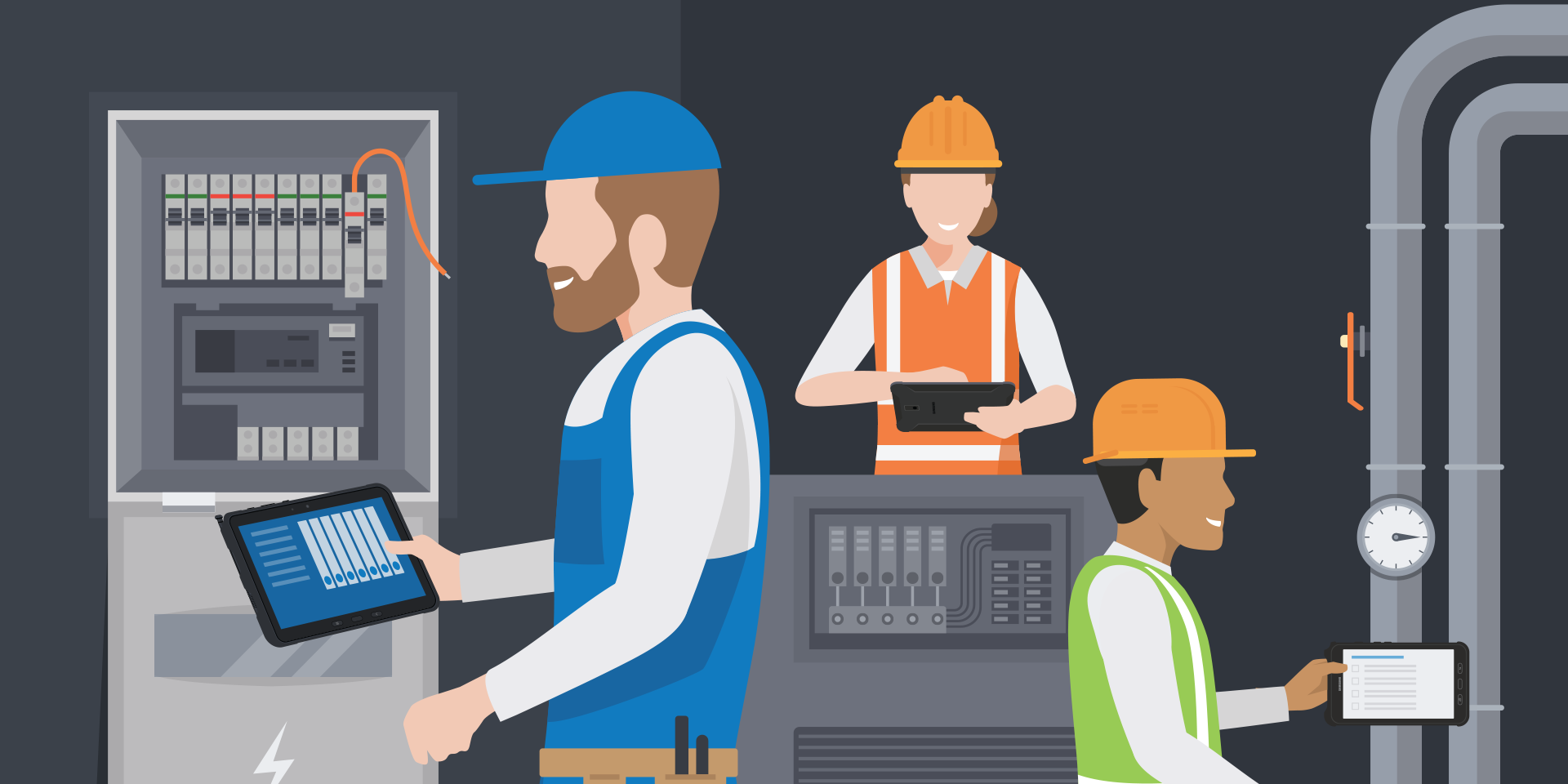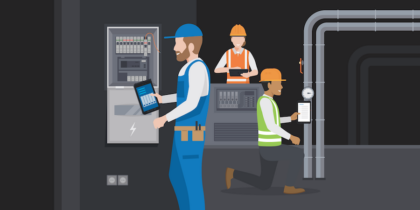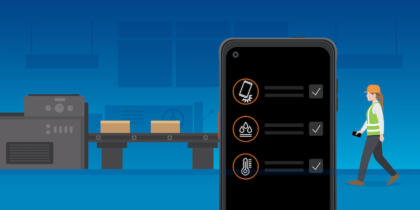If data is the new oil, field service companies need to collect more of it — both real-time and long-term — on client projects. A lack of connectivity between the field service worker and the corporate office can be expensive because it disrupts access to real-time intelligence with which to make decisions.
Field service companies can no longer afford silos between on-the-ground field service workers and the corporate team, including sales and customer relationship managers. Mobile devices that connect the field service organization deliver unprecedented efficiencies by allowing all parties to view the same data at all times for both short- and long-term gains.
Connectivity Delivers Actionable Data Access
In today’s field services landscape, data is vital currency. Most of the ways companies leverage field services data collection falls into one of two buckets: real-time tracking for immediate efficiencies and long-term modeling for optimization.

In real time, the field service worker and the company need to be connected to enjoy the following advantages:
Increased Productivity
If the field service worker runs into a problem, the manager at the corporate office can peek into the scene and make strategic decisions about how to proceed: provide smart assistance with an expert, reroute another worker who is close by to help or send backup parts as needed. Connectivity enables these interventions, which increase uptime and productivity.
Strategic Labor Allocation
Traditionally, a new customer service request meant the service representative would have to call a series of workers to find the best fit for a new job. Automating such assignments through field service management software on mobile devices assigns the right field service worker to the right job at the right time. Managers can also keep an eye on field service workers deployed in hazardous areas and move them out of harm’s way if needed. The Samsung Galaxy Tab Active2 and Pepperl+Fuchs’ Tab-Ex® 02 are ruggedized devices suitable for use in harsh environments, ensuring field service workers can access the most up-to-date information about the assignment, regardless of where they’re stationed.
Improved Customer Experience
An impressive 80 percent of service leaders report that field service is a big revenue generator, and an overwhelming 89 percent say the field service worker is a direct reflection of their brand, according to Salesforce. In today’s landscape of fleeting customer loyalty, it’s crucial to get field service right the first time. Connectivity with the corporate office empowers the field service worker to complete service projects on time, replace soon-to-fail parts proactively and upsell services that enhance customer experience. It also ensures that the sales organization and field service worker are aligned on the expectations set for the customer at the project’s onset.
Long-Term Field Services Data Collection
Field services data collection is also crucial for long-term trend analysis so management can gauge where and how to optimize strategic labor and goods investments. Data collection can also pinpoint the strengths and weaknesses in the holistic customer experience and provide insight into how field services companies can drive customer loyalty.
Empower Your Field Services Team With Mobility
Exceed customer expectations with this free guide to improving connectivity in field services. Download Now
Field services data collection in the long term helps companies by:
Tracing Systematic Bottlenecks
Analysis of how long service calls take to be answered and by whom, how long inventory stays outdated or even how often experts need to be called in can point to places where processes can be optimized. For example, if a field service worker constantly needs help when encountering a certain complex situation, the company can activate a custom training module so the employee can brush up on prior knowledge and increase productivity.
Detecting Patterns of Usage
If call volumes increase and decrease in systematic patterns, companies can make strategic decisions about how much labor to deploy and when. Companies in field services can also detect patterns in peak productivity, speed of service delivery and how often parts fail. Collecting data on a whole range of parameters allows field services companies to optimize processes and systematically increase efficiencies.
Improving Customer Service Delivery
Aggregated customer satisfaction data in field services can help companies understand which scenarios lead to dissatisfaction so negative issues can be resolved quickly before the customer escalates the problem. Long-term analysis of customer surveys and field service data can also identify if positive interaction led to upselling, cross-selling or increased customer loyalty.
Gauging customer motivation is one of the key drivers for loyalty, according to Forrester. Customers in turn repeatedly emphasize that convenience is a key indicator of a stellar experience, Forbes reported. Long-term analysis of speedy and accurate field service delivery can not only deliver immediate gains, but also improve long-term customer loyalty.
Mobile Devices Enhance Field Services
Traditionally, a field service worker would have to rely on phone calls or a paper trail to relay information, which increased the incidences of delays and inaccuracies. Mobile devices such as the Galaxy Tab Active2 are rugged and reliable workhorses in the field services industry because they make it easy for field workers to track and access much-needed data in real time. If field service workers and the office are empowered to take advantage of data collection and analysis, mobile devices can be key to a stronger customer experience and increased customer loyalty.
See a full rundown of the MIL-STD-810G testing the Tab Active2 passed in this infographic.Read a free white paper on improving connectivity in field services.








